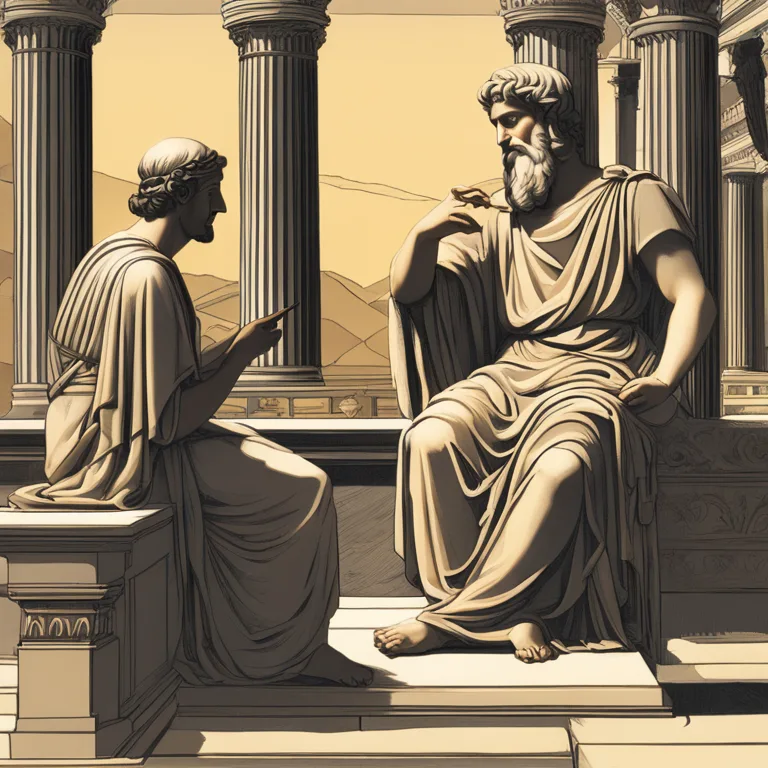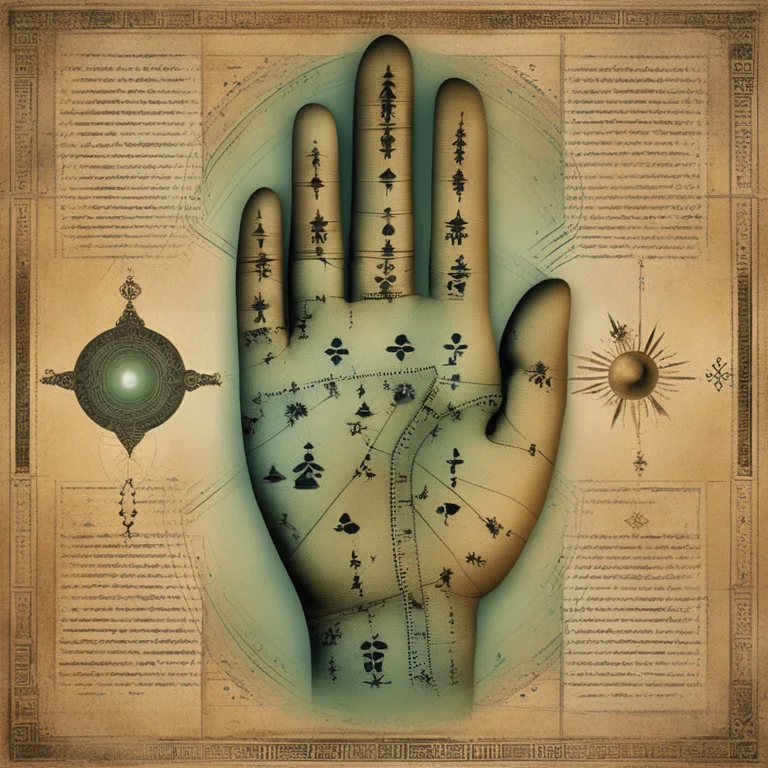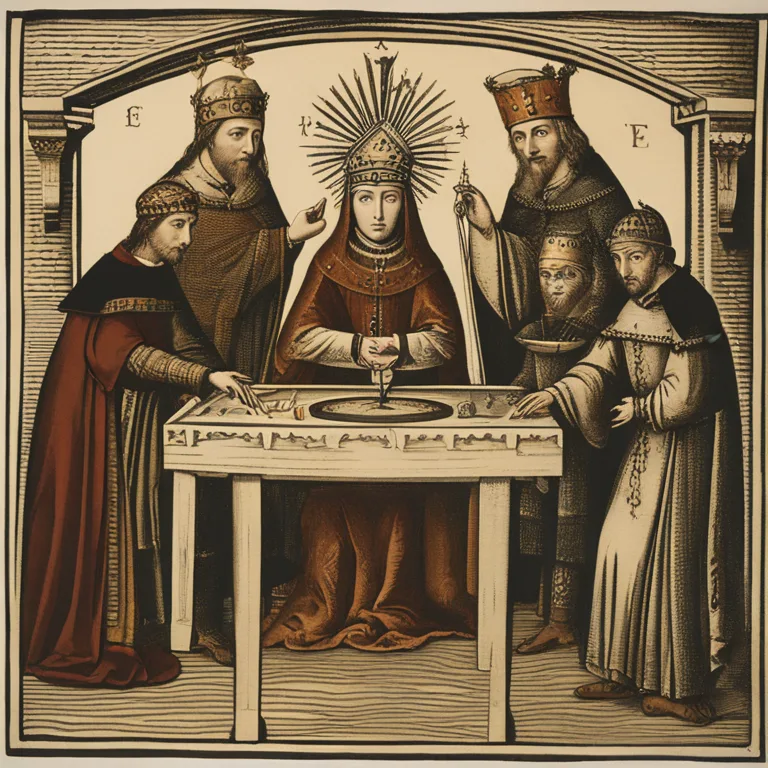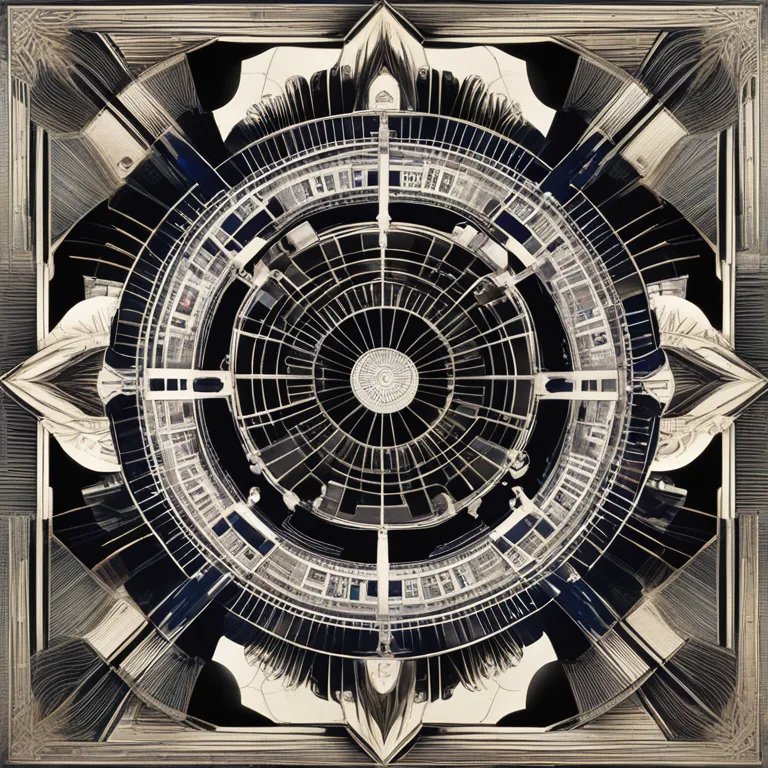
The Chronicles of Palmistry: A Historic Glimpse
Trace the ancient roots and historical journey of palmistry as this article unveils the transformation of hand reading through the ages.
article by Nora Pennington
Ancient Origins
Palmistry, known also as chiromancy or palm reading, is an ancient practice believed to have originated over 5,000 years ago. The art form is thought to have taken root in the cultural heartlands of India, subsequently weaving its way through the mystic traditions of China, Tibet, Persia, Egypt, and Greece. The ancient texts of the Vedas, the earliest scriptures of Hinduism, hold some of the first recorded instances of hand analysis, indicating an integral part of astrology known as Hasta Samudrika Shastra. This foundational period in palmistry's history is fundamental to our understanding of its cross-culturally rich genesis.

Greek Philosophical Adoption
As palmistry made its way into ancient Greece, it found a proponent in the philosopher Anaxagoras, who shared the knowledge with other thinkers of his time. The practice was further entrenched by Aristotle, whose fascination with the lines of the hand prompted a comprehensive study. Aristotle's musings on palmistry were later documented by his student, Alexander the Great, who used these insights to judge the character of his officers. Through such eminent endorsements, palmistry became interwoven with classical philosophy, forming a unique tapestry of predictive and psychological profiling that resonates even in contemporary interpretation.

Medieval Mysticism and Beyond
Despite facing accusations of heresy during the Middle Ages, palmistry covertly flourished within the folds of European society. It became entangled with Christian mysticism and was practiced by magicians and occultists who risked persecution. The Renaissance resurrected palmistry through literature and art, realigning it with emerging scientific inquiry. By the 17th century, Captain Casimir Stanislas D'Arpentigny, a French soldier, categorized hands into distinct shapes, linking them to personality types, while centuries later, scholars like William G. Benham advanced the field further with exhaustive works.

Modern Palmistry and Psychological Profiles
In modern times, palmistry has been intertwined with psychological analysis. The works of Carl Jung, for example, delved into the significance of symbols, which included those found on the human palm. This blending of ancient lore with modern psychology has given palmistry a new veneer of relevance, especially in the 21st century. Today, palmistry is not only a tool for forecasting one's fate but is also used in conjunction with psychological practices to provide deeper insights into one's personality and unconscious tendencies, broadening its appeal and application.

Technological Integration and the Digital Age
With the advent of digital technology and the internet, palmistry has entered a new era. Websites, apps, and online platforms now offer palm readings, extending the reach of traditional palmistry to a global audience. The development of biometric technology even considers palmar lines in identifying individuals, showcasing a pragmatic side to palmistry's storied lines. Hand scanners and image recognition software have added a layer of scientific intrigue, although the mystique of palmistry's predictive abilities remains a vibrant and alluring draw in contemporary culture.
Palmistry's Future Trajectory
As we look beyond 2024, the fusion of historical practices with emergent technologies raises intriguing possibilities for palmistry's evolution. While its core remains in the interpretation of the palms' lines, mounts, and shapes, the methodologies used for such analyses could transform with advancements in artificial intelligence and virtual reality. Such technologies may offer novel ways to engage with the art, providing personalized palm readings that traverse both time and space, and yet, the human touch in palmistry—that intuitive connection—promises to remain an indispensable aspect of the practice.
Published: 1/3/2024
Modified: 1/3/2024
More predictions
Come back here soon to learn more about yourself and your future


Exploring The Secrets of Palmistry
Delve into the ancient art of palmistry and discover how the lines on your hands can mirror the pathways of your life and fate.


The Art Of Palmistry Readings
Delve into the mystical world of palmistry and discover how reading palms can offer insights into your personality and future.


The Secrets Of Palmistry Revealed
Delve into the ancient art of palmistry and learn to read the stories etched in the lines of your hands.